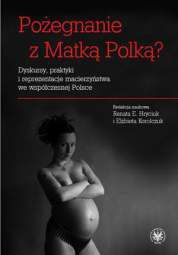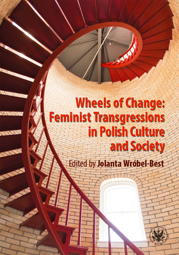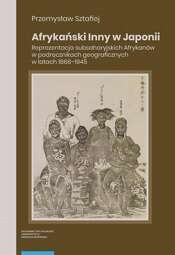Information about a product
Description
Fragments
Additions
Additions
Reviews
DOI/ORCID
Bibliography
Recommended products
Description
| Edition: | 1 |
| Place and year of publication: | Warszawa 2021 |
| Publication language: | angielski |
| ISBN/ISSN: | 978-83-235-4948-2 |
| EAN: | 9788323549482 |
| Number of page: | 242 |
| Size of the file: | 3,51 MB |
| Publication type: | Praca naukowa |
| DOI: | https://doi.org/10.31338/uw.9788323549482 |
Using rich and varied narrative images and resources, literary artworks, excerpts from philosophical and sociological writings, musicological theories and film studies, historical documents, and other materials, this collection of essays strongly sides with the feminist theory. All chapters tirelessly construct feminist discourse by depicting a new reality, language, and values to assess as well as understand the life, goals, and social achievements of women over a span of centuries in Polish culture and society.
Feminist transgression is envisioned as a thematic category bridging diverse, seemingly loose, distant, and even apparently contradictory women’s accounts. This theme develops a cohesiveness among chapters and provides an underlying unity, built on the coincidence of opposites, known in Latin as the principle of “coincidentia oppositorum.” Even if the dialogue among chapters may be perceived on the surface as difficult, the volume’s parts communicate deeply with each other by narrating, detailing, elaborating, and enlarging in space and time the presented dynamics of women’s transgressions. Transgression thus creates a special form of debate.
Keywords: transgression, feminist transgression and feminism, dynamics of women’s transgressions.
Feminist transgression is envisioned as a thematic category bridging diverse, seemingly loose, distant, and even apparently contradictory women’s accounts. This theme develops a cohesiveness among chapters and provides an underlying unity, built on the coincidence of opposites, known in Latin as the principle of “coincidentia oppositorum.” Even if the dialogue among chapters may be perceived on the surface as difficult, the volume’s parts communicate deeply with each other by narrating, detailing, elaborating, and enlarging in space and time the presented dynamics of women’s transgressions. Transgression thus creates a special form of debate.
Keywords: transgression, feminist transgression and feminism, dynamics of women’s transgressions.
Reviews
About author
DOI/ORCID
Bibliography
Fragments
Additions
Additions
Recommended products
Polecane

Pożegnanie z Matką Polką? Dyskursy, praktyki i reprezentacje macierzyństwa we współczesnej Polsce - pdf55,00 zł
14,00 zł
Details
- Jak w okresie transformacji ustrojowej i ekonomicznej zmieniało się w Polsce macierzyństwo? Jak ewoluowały wzorce, ideologie, postawy, reprezentacje, a także praktyki życiowe związane z rolą matki? Autorki książki odpowiadają na te pytania w sposób

















